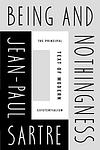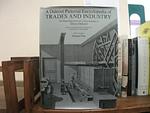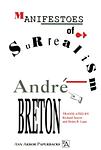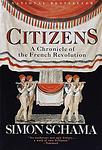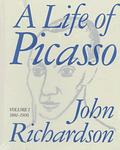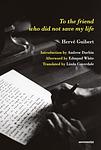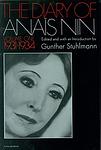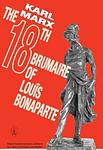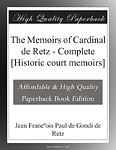The Greatest "Paris, Nonfiction" Books of All Time
Click to learn how this list is calculated.
This list represents a comprehensive and trusted collection of the greatest books. Developed through a specialized algorithm, it brings together 300 'best of' book lists to form a definitive guide to the world's most acclaimed books. For those interested in how these books are chosen, additional details can be found on the rankings page.
Genres
The "Paris" category of books typically refers to literature that is set in or inspired by the city of Paris, France. These books often explore the city's rich history, culture, and landmarks, as well as the experiences of its inhabitants. The genre may include fiction, non-fiction, memoirs, and travelogues, and may cover a range of topics such as art, food, fashion, and romance. Overall, the "Paris" category offers readers a glimpse into the enchanting and iconic city that has captivated generations of writers and artists.
Countries
Date Range
Reading Statistics
Click the button below to see how many of these books you've read!
Download
If you're interested in downloading this list as a CSV file for use in a spreadsheet application, you can easily do so by clicking the button below. Please note that to ensure a manageable file size and faster download, the CSV will include details for only the first 500 books.
Download-
1. The Confessions of Jean-Jacques Rousseau by Jean-Jacques Rousseau
"The Confessions of Jean-Jacques Rousseau" is an autobiographical work by a prominent philosopher of the Enlightenment era, who candidly shares his life story, from his humble beginnings in Geneva to his later years in exile. The book delves into his personal struggles, his intellectual journey, and his relationships, all while exploring his philosophical ideas on education, politics, and morality. The author's introspective narrative provides a unique perspective on his life and times, making it a seminal work in the history of autobiography.
-
2. Pensées by Blaise Pascal
"Pensées" is a collection of philosophical and theological thoughts and ideas by a renowned French mathematician and physicist. The book delves into various aspects of human existence, exploring the nature of faith, reason, and the human condition. It also presents arguments for the existence of God, including the famous wager argument. The book is known for its profound insights into the human experience and its exploration of the complexities of belief and doubt.
-
3. The Autobiography of Alice B. Toklas by Gertrude Stein
This book is an innovative and unconventional autobiography, penned from the perspective of the author's life partner, providing an intimate view into the lives of the Parisian avant-garde in the early 20th century. It offers a personal account of their life together, filled with anecdotes of their interactions with famous figures such as Picasso, Matisse, and Hemingway. The narrative also delves into the author's own thoughts and experiences, creating a unique blend of biography, autobiography, and personal memoir.
-
4. Moveable Feast by Ernest Hemingway
This memoir offers a glimpse into the life of a young American writer living in Paris during the 1920s. The book is filled with personal anecdotes and observations about his life and experiences, including his relationships with other expatriate writers and artists of the Lost Generation. The focus is on the joy of life, the art of writing, and the struggle of a writer. The book also explores the author's love for the city of Paris, which he refers to as a "moveable feast".
-
5. Being and Nothingness by Jean Paul Sartre
This philosophical work delves into the concept of existentialism and phenomenology, offering an in-depth analysis of human consciousness and existence. The author argues that we are all essentially free and responsible for our actions, and that we construct our own identities through our actions and interactions with others. The book also explores the idea of 'nothingness' and 'bad faith', suggesting that we often deny our freedom and hide from the responsibility of our actions, leading to a life of inauthenticity.
-
6. History of My Life by Giacomo Casanova
"History of My Life" is an autobiography of an Italian adventurer and author, who is best remembered for his often complicated and elaborate affairs with women. The book offers a fascinating insight into his life, travels, and encounters. It provides an intimate look at the social customs and life of the 18th century, as well as the author's personal philosophies on a variety of subjects, including love, luck, and the importance of maintaining a sense of humor.
-
7. Words by Jean Paul Sartre
This book is a memoir that explores the author's early life and development as an intellectual. He reflects on his childhood experiences in a non-linear narrative, detailing his relationship with his mother and grandfather, his early education, and his evolving understanding of language and literature. The author also delves into his philosophical ideas, examining the concept of existentialism and the role of the individual in society. The book serves as a profound exploration of the power of words and the impact of childhood experiences on adult life.
-
8. Down and Out in Paris and London by George Orwell
This book is a semi-autobiographical work that explores the harsh realities of poverty in two of Europe's most renowned cities. The protagonist, a struggling writer, first experiences the squalor, hardship, and vagabond lifestyle of Paris, where he works menial jobs and often goes hungry. The narrative then shifts to London, where the protagonist lives as a tramp, navigating the oppressive rules of homeless shelters and the stigma of poverty. The book is a deeply empathetic and insightful exploration of the often invisible world of the impoverished.
-
9. Promise at Dawn by Romain Gary
"Promise at Dawn" is a semi-autobiographical novel that explores the life of a young man growing up in Eastern Europe, and later in France, under the shadow of his ambitious and eccentric mother. The protagonist's journey takes him through various phases of his life from his childhood, through his experiences as a pilot in World War II, to his adult life as a diplomat and a writer. The story is a tribute to the protagonist's mother, who instilled in him the values of courage, resilience, and the pursuit of grandeur, even in the face of adversity.
-
10. Me Talk Pretty One Day by David Sedaris
This book is a collection of humorous, autobiographical essays that explore the author's experiences and observations in his life. The first part of the book focuses on his upbringing in North Carolina, his Greek heritage, his relationship with his eccentric family, and his early jobs. The second part of the book details his move to Normandy, France, his struggle to learn the French language, and his observations of French culture. The author's self-deprecating humor and sharp wit provide a satirical view of his life's journey.
-
11. Rameau's Nephew by Denis Diderot
"Rameau's Nephew" is a philosophical dialogue that explores themes of morality, societal norms, and the nature of genius. The story revolves around a conversation between a philosopher and a character who is the nephew of a famous musician. The nephew, a freeloader and a parasite, defends his lifestyle by arguing that it is not only acceptable but also necessary in a society where wealth and power determine value. The dialogue delves into the contradictions and ironies of social conventions, challenging traditional notions of virtue, vice, and human nature.
-
12. Encyclopédie by Denis Diderot
This comprehensive work is a pioneering encyclopedia that aimed to present all the world's knowledge in a systematic and accessible way. It covers a wide range of topics including arts, sciences, crafts, professions, and technology. The book is also notable for its radical and enlightenment ideas, challenging traditional institutions and advocating for freedom of thought. It played a significant role in shaping the intellectual landscape of the 18th century and beyond.
-
13. To the Finland Station by Edmund Wilson
This book is a historical narrative that explores the evolution of revolutionary thought, from the French Revolution through Karl Marx's theories to the Russian Revolution. It focuses on the lives and ideas of key figures in radical political thought, including Marx, Engels, Lenin, and Trotsky. The book culminates in the pivotal moment when Lenin arrives at the Finland Station in Petrograd in 1917, marking the start of the Bolshevik Revolution.
-
14. Surrealist Manifesto by André Breton
The Surrealist Manifesto is a groundbreaking work that introduces and defines the surrealist movement in literature and art. The book, written by the founder of the movement, presents the idea that the rational mind represses the power of the imagination, weighting it down with taboos. It argues that the world of dreams and the unconscious should be embraced to enhance creativity, leading to more complete and fulfilling human experience. The book also criticizes traditional societal structures and norms, advocating for revolution and freedom of thought.
-
15. Citizens by Simon Schama
"Citizens" is a detailed and comprehensive exploration of the French Revolution, offering a fresh perspective on the historical event. The book examines the revolution from its earliest beginnings to its aftermath, delving into the causes, key figures, and the immediate and long-term consequences. It provides a vivid and engaging account, highlighting that the revolution was not just a period of bloodshed and turmoil, but also a time of radical political and social change that shaped the course of modern history.
-
16. Between the World and Me by Ta-Nehisi Coates
The book is a profound work that explores the concept of race in America through the lens of the author's personal experiences. It is written as a letter to the author's teenage son, offering him a stark portrayal of his place in a society that is marked by racial injustice. The narrative provides a deeply personal analysis of American history and its lasting impact on the African American community, with the author sharing his experiences of fear, violence, and struggle. It is an exploration of the physical and psychological impacts of being black in the United States, and a call for a deeper understanding of the nation's racial history.
-
17. The World Of Yesterday by Stefan Zweig
The book is a poignant memoir reflecting on the transformative events and cultural atmosphere of Europe before World War I, through the interwar years and into the rise of the Nazis. It captures the author's experiences of growing up in a vibrant pre-war Vienna, the intellectual richness and artistic achievements of the time, as well as the profound sense of loss as the world he knew disintegrated into chaos and totalitarianism. With a mix of nostalgia and despair, the narrative serves as a lament for the lost world of European culture and as a warning about the fragility of peace and the human cost of war.
-
18. A Life of Picasso by John Richardson
This biography delves into the life of one of the most influential artists of the 20th century, Picasso. The book provides an in-depth look into his early life, his relationships, his artistic evolution, and his influence on the art world. It offers a comprehensive exploration of Picasso's personal and professional life, shedding light on his genius and the complexities of his character. The author's detailed research and intimate knowledge of the artist's life make this book a definitive biography of Picasso.
-
19. To The Friend Who Did Not Save My Life by Hervé Guibert
The book is a candid and harrowing autobiographical novel that chronicles the life of a man grappling with the devastating impact of AIDS during the early years of the epidemic. Through a blend of fact and fiction, the narrative delves into the protagonist's personal experiences with illness, the medical establishment, and the emotional complexities of friendship and mortality. As he confronts his own declining health, the protagonist reflects on the relationships with those around him, including a close friend who is also facing the disease, and the betrayal he feels when a promised miracle cure fails to materialize. The novel is a raw and poignant exploration of the human condition in the face of an unforgiving illness.
-
20. Treatise on Radioactivity by Marie Curie
This scientific work delves into the groundbreaking research on radioactivity, including the discovery and study of radium and polonium, by a pioneering female scientist. The book provides a comprehensive analysis of the properties and effects of radioactive substances, as well as their potential applications. It is a seminal work in the field of nuclear physics and chemistry, laying the foundation for future research and advancements in the field.
-
21. The Diary of Anais Nin, 1931-1934 by Anaïs Nin
This book is a deeply personal journal of a woman's life from 1931 to 1934, providing an intimate look into her experiences, thoughts, and emotions during this period. The author explores her relationships, her struggles with her writing, and her journey of self-discovery. The diary also captures her interactions with notable personalities of the time, giving readers a unique glimpse into the cultural and social milieu of the early 20th century. Her introspective and poetic style adds a layer of depth to her observations and reflections.
-
22. The 18th Brumaire of Louis Bonaparte by Karl Marx
This historical work provides a detailed analysis of the coup d'etat that brought Louis Bonaparte to power in France in 1851. The author examines the social and political dynamics that allowed Bonaparte to seize control, including the role of the bourgeoisie and the proletariat. He presents a critique of the event itself and its implications for the class struggle, suggesting that history repeats itself, first as tragedy, then as farce.
-
23. Memoirs of Cardinal De Retz by Cardinal de Retz
"Memoirs of Cardinal De Retz" is an autobiographical account of the life of a 17th century French clergyman who played a significant role in the Fronde, a series of civil wars in France. The book provides a detailed and insightful perspective on the political, religious, and social climate of the time. It chronicles the Cardinal's rise to power, his involvement in the civil wars, his relationship with key figures of the era, and his eventual imprisonment. The memoir is noted for its candid and often critical portrayal of the author's contemporaries.
-
24. The Provincial Letters by Blaise Pascal
"The Provincial Letters" is a series of 18 letters written by a philosopher and mathematician, where he defends his friend Antoine Arnauld, an opponent of the Jesuits, who was on trial before the faculty of theology in Paris for his controversial religious works. The letters mockingly criticize the morals and ethics of Jesuits, and the casuistry they used to justify moral laxity, while also debating various philosophical and theological issues. The letters are considered a masterpiece of French prose and had a significant influence on the French language.
-
25. The Painter Of Modern Life by Charles Baudelaire
"The Painter of Modern Life" is a seminal essay that explores the concept of beauty in the rapidly changing urban landscape of the 19th century. The author delves into the life and work of an artist who captures the fleeting, ephemeral experiences of modernity, arguing that the true artist must extract the eternal from the transitory. Through a series of observations and critiques, the essay celebrates the vibrancy of city life, the fashion of the day, and the character of the modern individual, while also examining the role of the artist as a detached but deeply perceptive chronicler of the contemporary world. The work is a philosophical treatise on aesthetics that has influenced both the understanding of modernism in art and the broader cultural perception of modern life.
Reading Statistics
Click the button below to see how many of these books you've read!
Download
If you're interested in downloading this list as a CSV file for use in a spreadsheet application, you can easily do so by clicking the button below. Please note that to ensure a manageable file size and faster download, the CSV will include details for only the first 500 books.
Download



